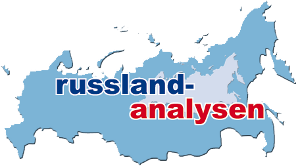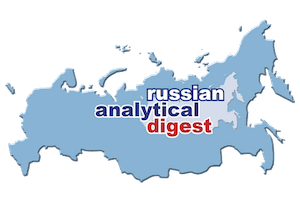How we analysed the data
The chart shows the frequency with which individual terms or combinations of terms appear in publications of the President of the Russian Federation over the period from 2000 up until 2019.
In preparing and depicting the data, we based our procedure largely on that used by our colleagues over at Zeit Online for their project 70 Jahre Bundestag – Darüber spricht der Bundestag [70 years of the Bundestag – What the Bundestag talks about]
What data did we use?
The analysis is based on raw data pulled from more than 10,000 transcripts published on the website of the Kremlin between 1 January 2000 and 31 December 2019. These include official addresses given by the Russian president and transcripts of meetings and interviews, as well as other kinds of texts, such as op-eds by the president that appeared in various newspapers.
Dmitry Medvedev served as Russia’s president from 7 May 2008 to 6 May 2012, with Vladimir Putin assuming the post of prime minister. Thus, the data for this period which is known as “castling” relate to statements made by Medvedev. From 7 May 2012 onwards, they once again relate to Putin’s words. We have labelled the years in the chart accordingly.
What procedure did we follow?
The transcripts posted on kremlin.ru also contain the speech of people other than the Russian president – people who attended meetings with the president, interviewed him, etc. Although we did our best to filter this speech out, we cannot absolutely rule out the possibility of slight distortions resulting from content of this kind, because the transcripts do not always indicate a change of speaker in a uniform manner.
The first thing we did to prepare the data for analysis was to chop the filtered transcripts up into individual words, known as tokens. Then we removed all of the “stop words” from the token list – i.e. words like “and” (и), “so” (так) or “only” (только), which have no particular relevance for the analysis.
Individual terms (especially in Russian) can occur in a variety of forms (газета, газеты, газете, газету, …), so the next step was to standardise all the variants, i.e. change them all to their dictionary form, or lemma. In computational linguistics, this step is called lemmatisation. We used an algorithm developed by the Russian search engine provider Yandex for this. (For the English version: StanfordNLP LemmaProcessor.)
We also searched the data for words that occur in two or three-word strings (known as n-grams) with particular frequency, because we were interested in combinations of words like “artificial intelligence” (искусственный интеллект) or “Great Patriotic War” (Великая Отечественная Война), as well as in individual terms.
The last step was to count the number of times that the words and word combinations appear in the data associated with each individual year. To ensure that differences in the volume of material published in different years would not distort the results, we set up the tool to chart relative rather than absolute frequency; i.e. it shows the frequency with which a word or a combination of words appears per 100,000 words in a year.
What else should users keep in mind?
Like the original documents, the data may contain misspelled words. To keep the dataset to a manageable size, only terms occurring at least three times over the entire period are shown.
The data for the German and Russian versions of this tool were derived from the Kremlin’s Russian-language publications; for the English version of the tool, we used the English-language publications at en.kremlin.ru. There may be differences between the English and Russian versions of a chart, since the English-language Kremlin site posts somewhat fewer documents and because the translations can sometimes differ from their source texts, and can also be prepared using different spelling standards (“modernisation” vs. “modernization”).
Decoding Putin
Vladimir was elected to the Russian presidency for the first time in March of 2000. He has been in power now for twenty years. Twenty is a lot of years. And a lot has happened: terrorist attacks, economic crises, the Russo-Georgian War, the annexation of Crimea and the war in eastern Ukraine, sanctions on Russia and Russia’s countersanctions. There have been extensive reforms, the inaugural sessions of five newly elected parliaments, and large-scale demonstrations.
The dekoder special 20 Years of Putin is an attempt to decode Putin. And we actually mean “decode” in a technical sense, not just a figurative one. For this purpose, we have developed a tool that analyses texts from the official website of the President of Russia to generate a graphic representation of the frequency of word use by Putin (2000–2008 and 2012–2020) and Dmitry Medvedev (2008–2012). Researchers from European universities pick out individual terms and tell us the stories behind them.
For the English version of this tool, we used the English-language publications at en.kremlin.ru. There may be differences between the English and Russian versions of a chart, since the English-language Kremlin site posts somewhat fewer documents and because the translations can sometimes differ from their source texts, and can also be prepared using different spelling standards (“modernisation” vs. “modernization”).


